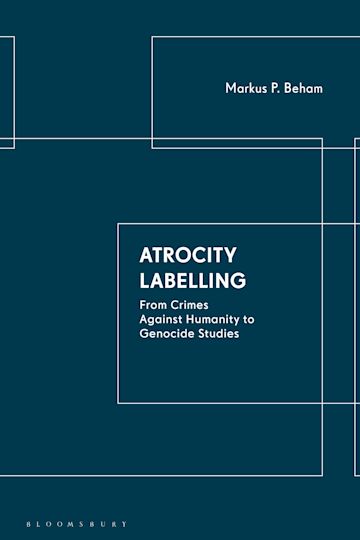 |
| Image source: Bloomsbury |
Description:
Atrocity. Genocide. War crime. Crime Against Humanity. Such atrocity labels have been popularized among international lawmakers but with little insight offered into how and when these terms are applied and to what effect. What constitutes an event to be termed a genocide or war crime and what role does this play in the application of legal proceedings?
Markus P. Beham, through an interdisciplinary and comparative approach, unpicks these terms to uncover their historical genesis and their implications for international criminal law initiatives concerned with atrocity. The book uniquely compares four specific case studies: Belgian colonial exploitation of the Congo, atrocities committed against the Herero and Nama in German South-West Africa, the Armenian genocide and the man-made Ukrainian famine of the 1930s. Encompassing international law, legal history, and discourse analysis, the concept of 'atrocity labelling' is used to capture the meaning underlying the work of international lawyers and prosecutors, historians and sociologists, agenda setters and policy makers.
Table of Contents
1. Introduction
2. From 'Crimes Against Humanity' to 'Genocide Studies'
3. Labelling Colonialism
4. Labelling Transformation
5. Conclusion
Index
More information with the publisher.
